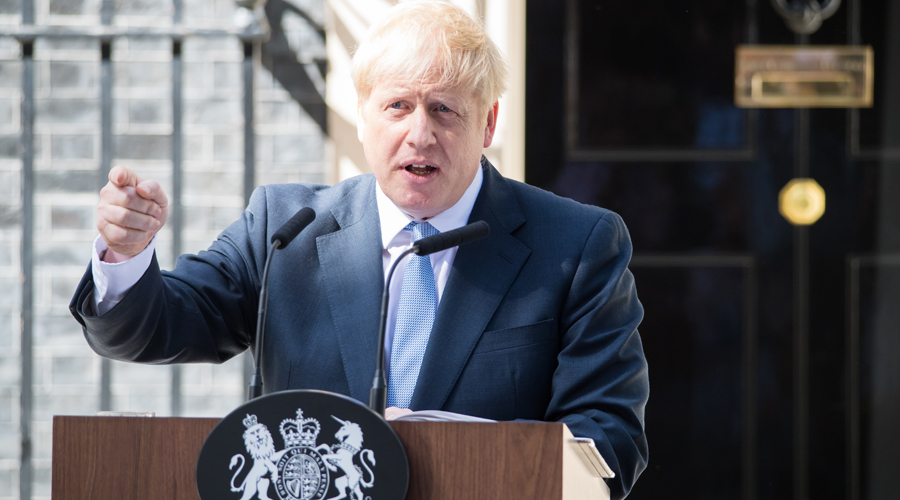Boris Johnson, who was supposed to be the chief guest at the Republic Day celebrations in Delhi on January 26 but had to postpone the visit because of a surge in coronavirus cases in the UK, is expected to make a spring trip to India ahead of going to Washington to see President Joe Biden.
He is also likely to go to Pune to drop in on the Serum Institute of India, which is making the Oxford-AstraZeneca vaccine.
A diversion to Pune would make sense. Not only does it symbolise successful UK-India collaboration but it would help him rub the noses of the Germans and especially the French who had initially doubted the efficacy of the vaccine in older people.
The French president once said the vaccine appeared “quasi-ineffective on people older than 65, some say those 60 years or older”.
The British say this was because the Germans and the French and the European Union in general are lagging far behind the British, who have managed to give either the Oxford or the PfIzer vaccine to over 21m people. The Germans and the French have now reversed their earlier stance on the Oxford vaccine and accept it is as good as any other vaccine. Going to Pune would enable Boris to emphasise this point.
At a press conference, Boris will no doubt be asked about the farmers’ dispute, on which the British government has said little or nothing. A group of MPs are due to debate the subject on March 8 – not in the Commons but in Westminster Hall. The British government line probably will be it would encourage both sides to negotiate an amicable settlement.According to the Daily Telegraph, the British Prime Minister “is planning a springtime trip to India to tout Britain’s vaccine success and push for progress on deepening trade relations after Brexit. The visit will be the Prime Minister’s first official overseas trip in a year after the Covid-19 pandemic has kept him at home”.
It added that visit will happen before the G7 meeting of world leaders in Cornwall in June, with Johnson possibly flying out as early as next month. While specifics of the visit are still being confirmed, Boris “is expected to visit Delhi and possibly Pune, a sprawling city in the west of India”.
A visit would allow Boris “to put the spotlight on an area of major UK success in the fight against the pandemic.” Tories hope their performance on that front – 40 per cent of the UK adult population has now had a jab – will bring a political boost for the May local elections.
“Whitehall is also working to line up a string of trade wins that the Prime Minister can announce during his trip.
“A free trade deal with India is one of the top priorities of Liz Truss, the International Trade Secretary, as she tries to map out
Britain’s post-Brexit trade policy. She is understood to be calling her Indian counterpart (Piyush Goyal, India’s commerce and industry minister) every week in an attempt to speed up talks, which are expected to go on throughout the year.
“New business deals and possible improvements in Britain’s access to Indian markets are being pursued with an eye to being announced during the trip.
“Government officials are also looking into whether they can take advantage of booming interest in whisky in India to help sell more Scotch.”
For Boris a visit to India is not exactly a “foreign trip”, given the UK has 2.5m Indians, whose votes can no longer be taken for granted by the Labour party as was the case in the past. Boris will also boast he has the most diverse cabinet in British history.











